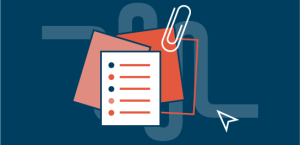our resources

Are you an entrepreneur, a support structure or simply want to find out more about impact entrepreneurship?
PULSE and its entities have designed resources tailored to your needs.
Don’t hesitate to discover them and get in touch with our teams to find out more!
Regional study on social entrepreneurship in the Western Balkans
As part of the RISE (Regional Incubator for Social Entrepreneurs) project, a regional study on social entrepreneurship in the Western Balkans was published in 2020. Developed and produced by two researchers, Teo Petricevic and Jelena Andjelic, and coordinated by the RISE consortium, the document provides the most recent, relevant and concise information on the current state of social and youth entrepreneurship in the Western Balkans. The paper focuses on legislation, education systems, financial and non-financial support structures, networking structures and new markets for social enterprises in the region.
The full document is available in English.
The social/solidarity-based economy: a catalyst for social innovation in Africa?
This report, published by the ILO in September 2022, illustrates and characterises the social innovation processes carried out by social and solidarity economy organisations (SSEOs) in five African countries (Cameroon, Morocco, Senegal, South Africa and Tunisia). By analysing practical cases of social innovation, it explores the extent to which SSEOs are helping to generate social innovation in Africa for more sustainable and inclusive local development, and for the creation and promotion of decent work for all. The report highlights the internal and external factors that have an impact on SSEOs in their social innovation process and presents a series of policy recommendations to unleash the potential of SSEOs as a catalyst for social innovation in Africa.
This report was produced with the support of PULSE, Lab’ess and ORIBI.
It is available in French and English.
Plaidoyer
Considering that in order to better fulfil our social vocation, we also needed to seek to improve the SSE ecosystem as a whole, focusing in particular on the shortcomings identified and the solutions we believe in, PULSE launched its first advocacy campaign in 2022.
The 2023 activity report is out !
🌍 PULSE Group: Empowering Entrepreneurs Across Borders !
From Tunisia to Senegal, South Africa to France, PULSE Group is proud to support impact-driven entrepreneursaround the world. Our incubators have enabled 13,000+ people to discover the power of entrepreneurship for a better tomorrow. 🌱
📍 2023 Key Figures:
- 37 incubation programs delivered across 18 countries.
- 600+ entrepreneurs supported, with 60% women leading impactful ventures.
- Our signature programs, like RISE in the Balkans and REACH in Africa, are transforming local communities.
💡 2024 Outlook:
As we look ahead, we are committed to growing our global network, expanding partnerships, and continuing to foster social and environmental impact.
📲 Discover our 2023 Annual Activity Report for all the details :
Guide to Improving Gender Integration in/through Entrepreneurship Support Structures
FoWoSE stands for Fostering Women’s Social Entrepreneurship through the Gender Mainstreaming of Support Structures. This project is led by PULSE in collaboration with Women on Top (Greece), Empow’Her (France), Reach for Change (Bulgaria), and Synthesis (Cyprus).
The goal of the project is to accelerate the integration of gender at both the operational and program levels within the support structures of the entrepreneurial ecosystem. To achieve this, the project develops methodological and training content, such as this guide, tailored to the needs of women, which will enable support organizations to establish programs and initiatives adapted to the needs of women social entrepreneurs.
Through this Guide to Improving Gender Integration in/through Entrepreneurship Support Structures, we aim to empower each support organization to integrate the gender dimension into their policies, practices, and operations, thus fostering an increasingly equitable entrepreneurial ecosystem.
This publication has received financial support from the Erasmus+ program of the European Union. The content of this publication is the sole responsibility of the author and cannot be considered as reflecting the views of the European Union.